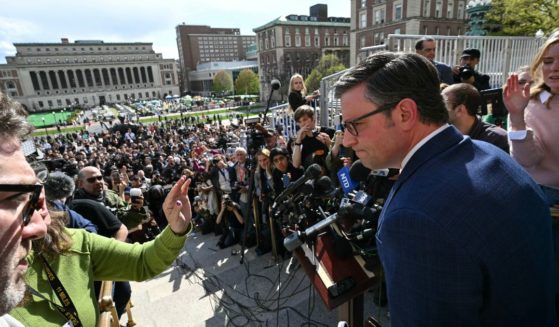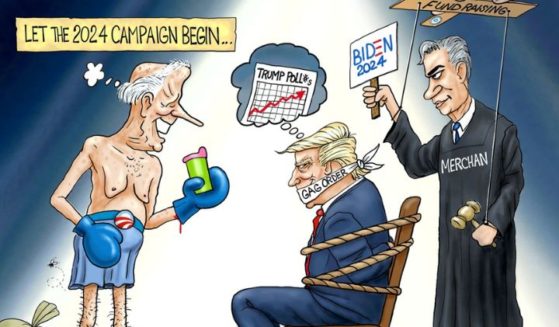F. Peter Brown: If We Want to Protect Free Speech, We Should Leave Section 230 Alone
Free speech is unquestionably part of the bedrock of American rights.
The First Amendment to the Constitution is one of the most important amendments because it protects this right, among other things.
However, our freedoms are under attack from multiple directions. One of the greatest threats to freedom of speech in this internet age is reform of Section 230 of the Communications Decency Act.
In 1996 Congress protected websites (such as Twitter and Facebook today) by passing this act and gave them limited liability for what their users post.
Now both former president Donald Trump and current president Joe Biden both want to either change or get rid of Section 230. Reforming or annulling this section would be a grave error, though.
Freedom of speech is treasured for good reason by most Americans.
James Madison introduced a version of the First Amendment to the House of Representatives that read, “The people shall not be deprived or abridged of their right to speak, to write, or to publish their sentiments; and the freedom of the press, as one of the great bulwarks of liberty, shall be inviolable.”
This was later changed to the final form of the First Amendment: “Congress shall make no law respecting an establishment of religion, or prohibiting the free exercise thereof; or abridging the freedom of speech, or of the press; or the right of the people peaceably to assemble, and to petition the Government for a redress of grievances.”
Without free speech, our nation would become a totalitarian nightmare similar to Hitler’s Nazi Germany or Stalin’s USSR. Free speech deserves protection and should rank as one of every citizen’s foremost concerns about the U.S. government.
Our country’s road to its great freedom of speech and press has not been an easy one. As early as the Alien and Sedition Acts of 1798, our freedoms were challenged.
The Sedition Act in particular would be repugnant to our modern sensibilities of freedom of speech and press. Notably, the act made it illegal “to oppose any measure or measures of the government.”
Our notion of free speech evolved, however, and the nation benefited from a series of rulings in the early 20th century that protected freedom of speech and the press.
For instance, in Gitlow v. New York, free speech was applied to state law, not just federal law, through the 14th Amendment.
What would our nation look like without freedom of speech and press? It would be a much less rich cultural and intellectual environment, for one. It would become a totalitarian government that would rule in an environment of fear.
We would no longer be a shining city on a hill, as argued by early colonial leader John Winthrop and later by President Ronald Reagan.
Section 230 reform would be a disaster for our technological society. However, this is not the only threat, as politicians on both the left and the right could lead us down a dark path without freedom of speech and press.
Let us hope that our invaluable rights retain their privileged place in our hearts, in our minds and in our laws.
The views expressed in this opinion article are those of their author and are not necessarily either shared or endorsed by the owners of this website. If you are interested in contributing an Op-Ed to The Western Journal, you can learn about our submission guidelines and process here.
Truth and Accuracy
We are committed to truth and accuracy in all of our journalism. Read our editorial standards.












